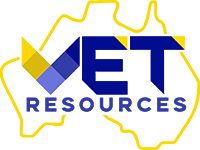Introduction
The National Centre for Vocational Education Research (NCVER) is a national professional body responsible for collecting, managing, analysing and communicating research and statistics on the Australian vocational education and training (VET) sector. It was established in 1981 and is funded by the Australian Government.
NCVER’s research and statistics are used by policy makers, educators, employers, and other stakeholders to make informed decisions about the VET sector. NCVER also provides advice and support to VET providers, and funds research on the VET sector.
The Importance of NCVER for RTO

- Data and insights: NCVER provides RTO with data and insights on the VET sector, which can be used to improve their operations and services. For example, NCVER data can be used to track student enrolments, course completion rates, and employment outcomes. This information can help RTO to identify areas where they can improve their performance.
- Advice and support: NCVER also provides RTO with advice and support on a range of topics, including quality assurance, curriculum development, and marketing. This support can help RTO to deliver high-quality training and meet the needs of their students.
- Funding for research: NCVER funds research on the VET sector, which can help RTO to stay up to date on the latest trends and developments. This research can also provide RTO with new ideas and strategies for improving their operations.
The importance of NCVER for VET

Conclusion
NCVER is an important resource for RTO and VET. Its research and statistics, advice and support, and funding for research all play a vital role in ensuring that the VET sector is meeting the needs of employers, students, and the economy.
Are you an RTO looking for quality training resources? If yes, then VET Resources is your partner. We also have a YouTube Channel with videos on RTO related matters. We also offer free consultation to RTOs. For further information please contact here.
Frequently Asked Questions (FAQs)
Q.1. What are NCVER nominal hours?
A: NCVER nominal hours are the number of hours that a student is expected to study for a particular course. They are used by NCVER to collect data on the VET sector and to compare the length of different courses.
Q.2. How do I log in to NCVER?
A.2. To login to NCVER, you will need to create an account. You can do this by visiting the NCVER website and clicking on the “Login” button. You will then need to enter your username and password.
Q.3. What is the URL for NCVER’s website?
A.3. The URL for NCVER’s website is www.ncver.edu.au.
Q.4. What is NCVER Australia?
A.4. NCVER Australia is the Australian office of NCVER. It is responsible for collecting, managing, analysing, and communicating research and statistics on the Australian VET sector.
Q.5. What is an NCVER conference?
A.5. An NCVER conference is a conference organized by NCVER to discuss current issues in the VET sector. These conferences provide a forum for VET stakeholders to share ideas and best practices.
Q.6. What is the full name of NCVER?
A.6. The full name of NCVER is the National Centre for Vocational Educational Research.
Q.7. What are the quality standards for registered training organisations (RTOs) in Australia?
A.7.The quality standards for RTOs in Australia are set by the Australian Skills Quality Authority (ASQA). These standards are designed to ensure that RTOs provide high-quality training and education. The standards cover areas such as curriculum development, teaching and learning, assessment, and student support.
Q.8. Where can I find statistical reports on the Australian VET sector?
A.8. The National Centre for Vocational Education Research (NCVER) publishes statistical reports on the Australian VET sector. These reports provide data on a range of topics, such as student enrolments, course completion rates, and employment outcomes. The reports can be found on the NCVER website.
Q.9. Where can I find information on the standards of quality for VET in Australia?
A.9. The Australian Skills Quality Authority (ASQA) sets the standards of quality for VET in Australia. These standards can be found on the ASQA website.
Q.10. What are some related research areas in VET?
A.10. Some related research areas in VET include:
- The impact of VET on employment outcomes
- The effectiveness of different teaching and learning methods in VET
- The factors that influence student success in VET
- The role of VET in workforce development
- The future of VET
Q.11. What solutions does the Australian government Department of Employment offer to Australian companies for their decision making?
A.11. The Australian Government Department of Employment offers a range of solutions to Australian companies for their decision making. These solutions include:
- Information and advice: The department provides information and advice on a range of topics related to employment, such as labour market trends, skills shortages, and government policies.
- Financial assistance: The department provides financial assistance to companies to help them train their employees or to develop new skills.
- Partnerships: The department works with companies to develop partnerships that can help them to improve their workforce skills and productivity.
Q.12. How do commonwealth governments influence Australian practices in VET?
A.12. The commonwealth governments influence Australian practices in VET in a number of ways. These include:
- Setting standards: The commonwealth governments set standards for VET, such as the National Training Framework. These standards ensure that VET providers offer high-quality training.
- Providing funding: The commonwealth governments provide funding to VET providers, which helps to ensure that VET is accessible to all Australians.
- Regulating the sector: The commonwealth governments regulate the VET sector, which helps to ensure that VET providers meet the required standards.
Q.13. Where can I find statistical reports on territory education in Australia?
A.13. The National Centre for Vocational Education Research (NCVER) publishes statistical reports on territory education in Australia. These reports provide data on a range of topics, such as student enrolments, course completion rates, and employment outcomes. The reports can be found on the NCVER website.
Q.14. What is the role of educational institutions in vocational education research?
A.14. Educational institutions play a vital role in vocational education research. They provide researchers with access to students, staff, and resources. They also help to disseminate research findings to practitioners and policy makers.
Q.15. How can I get quick access to key dates and data analytics for registered training organisations (RTOs) using the national VET data policy (NVDTP)?
A.15. The National VET Data Policy (NVDTP) provides a framework for collecting, managing, and sharing data on the Australian VET sector. This data can be used to provide quick access to key dates and data analytics for RTOs.
There are a number of ways to access this data. One way is to use the NCVER Data Hub. The NCVER Data Hub is a web-based platform that provides access to a range of VET data, including key dates and data analytics for RTOs.
Another way to access this data is to use the NVDTP API. The NVDTP API is a set of tools that can be used to programmatically access VET data. This can be useful for RTOs that need to integrate VET data into their own systems.
The NVDTP also provides a number of tools and resources to help RTOs use data analytics to improve their operations. These tools and resources can be found on the NVDTP website.
Suggested Read: What Does Establishment of TRG mean for TAE Training and Assessment in Australia
Disclaimer:
The information presented on the VET Resources blog is for general guidance only. While we strive for accuracy, we cannot guarantee the completeness or timeliness of the information. VET Resources is not responsible for any errors or omissions, or for the results obtained from the use of this information. Always consult a professional for advice tailored to your circumstances.






